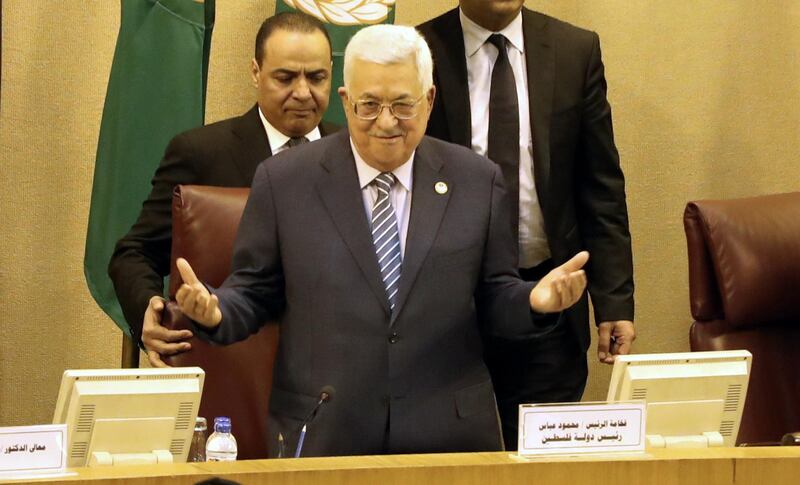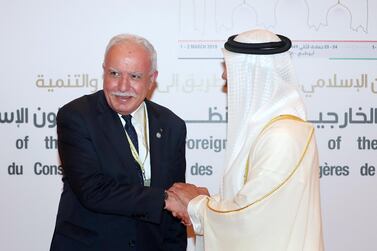The Arab League this week pledged $100 million per month to Palestinian authorities in bid to alleviate political and financial pressures from Israel.
Foreign ministers of the region gathered in Cairo on Sunday for an emergency meeting on Palestine.
"We confirm that Arab countries will support the Palestinian state's budget ... [to] resist the political and financial pressure it faces," the League said in a statement following the meeting.
Israel collects taxes on behalf of the Palestinian Authorities, but withheld $138 million in transfers in February over Palestinian payments to political prisoners jailed for attacks against Israelis.
The announcement comes as US President Donald Trump promised to strike "the ultimate deal" to end the bitter and protracted struggle over land, but details of the plan worked on over the past two years have yet to be made public.
Palestinian President Mahmoud Abbas urged members of the league to "engage actively at this critical time".
Mr Abbas is attempting to rebuff Mr Trump’s peace plans which could be released this summer.
The Palestinian official said his administration rejects the deal and demand Israel fully withdraw from all occupied territories.
The Arab League said the deal "will not succeed in achieving long-lasting and comprehensive peace in the Middle East".
Ministers of the league also called on Palestinian groups to pursue national reconciliation between rival factions and to hold elections.
Mr Abbas said that Israel's Prime Minister Benjamin Netanyahu "does not believe in peace".
He said that Mr Netanyahu was "offered a real peace deal based on international legitimacy."
The peace plan is being developed by Mr Trump's son-in-law Jared Kushner, whose close ties to Mr Netanyahu have heightened Palestinian suspicions.
Since December 2017, Arab states have been attempting to counter Mr Trump’s move to recognise Jerusalem as Israel’s capital in December 2017, a decision that overturned decades of American policy on the Middle East.
The administration also relocated the American embassy to the city five months later – a move considered a direct violation of UN law and the 1967 borders that Arab states consider a baseline for discussing Palestinian statehood. It drew condemnation across the Arab world and internationally.
Palestinians claim East Jerusalem as the capital of a future state. Israel regards Jerusalem as its eternal capital.
The embassy move infuriated the Arab world and upset Western allies, who say it is a blow to peace efforts and risks sparking more violence in the region.
Most countries consider East Jerusalem, which Israel annexed after capturing it from Jordan in the 1967 war, to be occupied territory, and say the status of the city should be decided at future Israeli-Palestinian talks.
The Trump administration has since dealt a series of blows to the Palestinian Authority, including cutting hundreds of millions of dollars in aid to the UN agency for refugees and funding for hospitals in occupied East Jerusalem.







